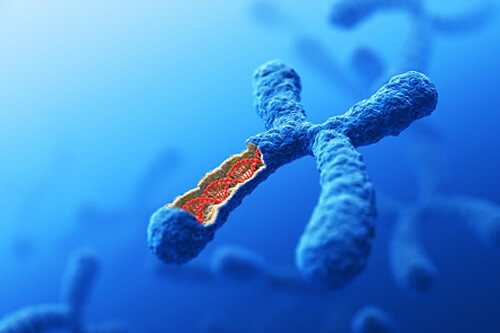DNA testing: Is knowledge power?
Key Takeaways
Over the past few years, direct-to-consumer DNA testing kits have become all the rage, promising the knowledge to help you decide whether you should wear lederhosen or carry a shillelagh to celebrate your forebears. With just a little spit or a simple swab of the mouth, kits from companies like 23andMe, AncestryDNA, and Family Tree DNA—to name just a few—promise to uncover your distant family heritage, find unknown relatives, and even identify which diseases your DNA may already be coded for.
But, as consumers spit and swab their way to revealing what is perhaps their most personal information—buried deep in their cellular nuclei and mitochondria—clinicians should be aware of what test results may portend, both medically and legally, and be ready to deal with patient questions.
According to experts from California State University, Long Beach, CA, clinicians can offer their patients four pieces of advice to consider and remember before taking a DNA test:
- DNA testing will not reveal your whole genetic story. "You can't sequence a human genome for 100 bucks," stressed Jason Bush, PhD, associate professor of biology, California State University, Fresno, CA.
- Results can vary greatly, depending on which testing company you use. Testing companies can use different reference populations and algorithms to compare your data, and can group ethnicities differently. "[Since] they're not all sequencing the same stuff… [it] leads to variable results," said Dr. Bush.
- Use the information you obtain from DNA testing wisely, and be cautious with your information. Federal laws are just starting to protect users against discriminatory practices that may occur.
- Be ready for some surprises. "I have worked with family members who find out they have a half-sibling or an unknown biological parent on the day the test results come back. It can be really upsetting for people," warned Colleen Greene, a genealogist and librarian at California State University, Fullerton's Pollak Library.
In light of the possibilities that may stem from our ability to mine the myriad information contained in the nucleotide-laden double helices that are present in almost every cell in the human body, it may be a good idea to keep these important factors in mind.
Be protective of your data
Suppose genetic testing revealed a significant risk for Parkinson's disease? Or the presence of the BRCA gene mutation?
In March 2018, the Food and Drug Administration authorized 23andMe to issue reports on genetic health risks and genetic carrier status. Clinicians should be prepared to discuss the presence or report of an increased risk of certain conditions—such as breast cancer—with their patients, and stress that "risk does not translate into disease," according to Dr. Bush.
Such information may, instead, be used proactively, Dr. Bush added.
"Knowing about one's family health history can be really empowering," he said, and added that such knowledge can help in making informed medical decisions. "I'm a firm believer that information is power."
Once genetic risks or tendencies are revealed, can they be used against you? Can companies use this information to discriminate?
Federal laws prevent DNA discrimination, but these laws need to be refined as the specificity and quantity of DNA testing will undoubtedly advance and expand in the future. The Genetic Information Nondiscrimination Act of 2008 (GINA) prevents discrimination by health insurers and employers with more than 15 employees. The act does not, however, cover life, disability, or long-term care insurance.
In California, CalGINA was signed into law in 2011, and extends the scope of the federal GINA rule to prohibit genetic discrimination in emergency medical services, housing, mortgage lending, education, and state-funded programs.
"We are seeing efforts at the national level to give insurers much more freedom to identify extensive lists of preexisting conditions and exclude people with those conditions from coverage," warned Janet Stemwedel, PhD, professor and chair, Department of Philosophy, San Jose State University, San Jose, CA. "It is not a moment where I have a lot of confidence that the results of a direct-to-consumer (DTC) genetic test will have no impact on the consumer's ability to get health insurance."
Further, privacy and data security are important issues to remember.
"The gene sequencing results provided by DTC companies now joins things like our credit card numbers in the pool of information available to be stolen by hackers and used for purposes we never authorized or imagined," continued Dr. Stemwedel.
Know when you've given consent
Finally, genetic testing involves informed consent, and patients should be aware of how their DNA data could be used.
In late July 2018, 23andMe partnered with GlaxoSmithKline (GSK) to use DNA to develop medical treatments in a $300 million deal that gives GSK access to 23andMe's genetic database consisting of about 5 million customers. With this, GSK will work to design potential new treatments for conditions such as Parkinson's disease.
The Federal Trade Commission is already investigating DNA testing companies such as 23andMe and Ancestry.com over their policies for data security, sales, and sharing.
Ms. Greene cautioned: "They (consumers) need to understand how the DNA will and can be used, and be made aware of the risk that if someone in their family has committed a crime, there is a potential for them to be discovered."
In fact, California's notorious Golden State Killer was identified earlier this year by police who used familial DNA matching from GEDMatch, an open data personal genomics database and genealogy website.
Types of DNA tests
Autosomal DNA test

- Typically used by the DTC DNA test kit companies
- Uses autosomes (chromosomes 1 to 22)
- Generally used for family genealogy projects
- Identifies population groups (Eastern European, Scandinavian, Northern European, etc)
- Shows the amount of hominin DNA (ie, Neanderthal and Denisovan) from which modern Europeans inherited 1% to 5% of their DNA
- Can test for "genetic distance" and single nucleotide polymorphisms to compare with DNA from others in the database
- Companies that use autosomal DNA testing use different reference populations to produce an ethnic profile, so results will vary from company to company
- Used by 23andMe, Ancestry.com, and Family Tree DNA
Mitochondrial DNA test

- Only looks at mitochondrial DNA passed from mother to child
- Can be used in both men and women, as everyone has mitochondrial DNA
- Mitchondrial DNA remain unchanged from mother to child because they are not subject to recombination shortly after conception, unlike the 23 chromosome pairs inherited from both parents
- Used to delineate the direct maternal line as far back as 52 generations
- Generally used for deep ancestry and anthropologic research
- Used by Family Tree DNA and National Geographic's Genographic Project
- Used to identify the remains of King Richard III of England
Y-DNA test

- Assesses only the Y chromosome, inherited from father to son
- Can only be done in males
- Mutations rarely occur in the Y chromosome, which makes for very little genetic variation
- Generally used for deep ancestry, going back thousands of years
- Most effective for tracing paternal lineage up to 25 generations ago
- Used by Family Tree DNA and National Geographic's Genographic Project